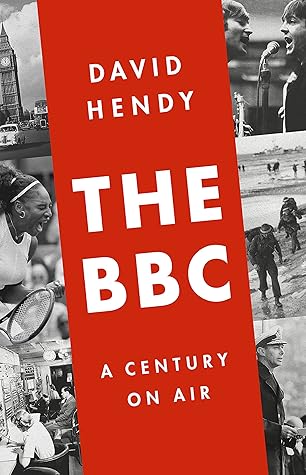More on this book
Kindle Notes & Highlights
A poll of men and women listed in Who’s Who once found that the Corporation was regarded as more influential than Parliament or the Church of England. Although not actually a government-run broadcaster, it is a body so clearly aligned with the ‘Nation’ that it often feels to us like an organ of state, as if it were a creative arm of the civil service. It exists by Royal Charter, and the licence fee that funds it is set by ministers in Parliament. If nuclear war begins, the last voice of authority we will hear before Armageddon arrives is a Radio 4 announcer.
For Reith, the most profound revelation of all when he began his new job at the British Broadcasting Company was the complete lack of direction from above. ‘There were’, he explained, ‘no sealed orders to open.’ This simple fact had one profound and immediate consequence, as far as he was concerned. ‘Almost everything depended upon the personality of those to whom, almost by chance, this service had been committed.’56 Their beliefs, their prejudices, their fears, their hopes – the whole crooked timber of their humanity: twisted together, this made up the DNA of the BBC. It was to be an
...more
The next day the reporter from the Times described an experience that sounded more like a Victorian magic lantern display than the birth of a modern new medium. Staring at the ghostly, juddering image, he said he had felt as though he were ‘prying through a keyhole at some swaying, dazzling exhibition of the first film ever made’. The reporter from the Observer was a little more prescient. ‘Like the squeakings of the first phonograph and the flickerings of the first moving-pictures,’ he wrote, ‘the beginnings of Television must not be judged by actual performance; they must rather be regarded
...more
He framed Dunkirk as a ‘miserable blunder’ that had ended as an ‘epic of gallantry’ and contrasted the soulless efficiency of the German war machine with the plucky British, who had improvised their way to safety with hundreds of small boats sailing into ‘the inferno, to defy bombs, shells, magnetic mines, torpedoes, machine-gun fire’. ‘And our great-grandchildren,’ he concluded, ‘when they learn how we began this War by snatching glory out of defeat, and then swept on to victory, may also learn how the little holiday steamers made an excursion to hell and came back glorious.’ Churchill’s
...more
It was an audacious approach. Behind the scenes at the BBC, Attenborough had to face down complaints that ‘green slime is not the way to start off a big series’. Yet the gamble paid off, not least because the opening episodes featured images of such startling close-up intimacy that even some of the world’s tiniest creatures kept everyone glued to their sets. In the penultimate episode, viewers witnessed the most extraordinary sequence of all. The idea, Attenborough explained, had been for him to be filmed on a Rwandan mountainside explaining the evolution of the opposable thumb while gorillas
...more
After just two episodes of the series the Observer’s television critic Clive James declared himself ‘slack-jawed with wonder and respect’: ‘you practically need a seat-belt, the aesthetic effect is so stunning.’ By the end, he admitted to having been ‘distracted only by envy of my own children, for whom knowledge was being brought alive in a way that never happened for my generation or indeed for any previous generation in all of history’.


